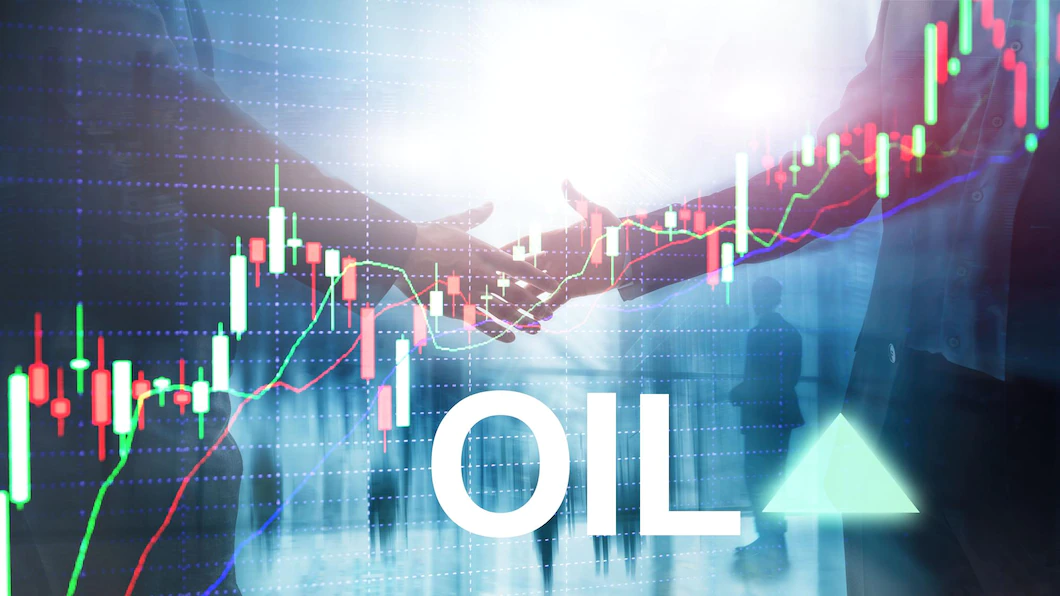Trading Oil as CFD
Trading oil as CFDs is a great way to speculate on prices and gain leverage over the market. However, keep in mind that CFD trading is not without risk. To minimize your losses, follow these tips: 1. Get good advice from a financial advisor. 2. Keep a close eye on your portfolio andistentity. 3. Only trade as much as you can afford to lose. 4. Understand the risks and potential rewards associated with each position. 5. Take appropriate precautions to protect your assets.
1. Aug 21, 2016 – Trading oil as CFDs: What you need to know before getting involved Trading oil as CFDs can be a profitable way to invest in the commodities market, but you need to be aware of the risks involved. 2. Trading oil as CFDs can be profitable if you are able to correctly forecast prices. However, you need to be prepared to monitor your positions vigilantly and take appropriate precautions to protect your assets. 3. The risks associated with trading oil as CFDs include the potential for market volatility and price volatility. You also need to be aware of the potential for margin calls and other losses. 4. It is important to research the markets in which you are trading and to seek independent advice if you have any questions about the risks involved.
CFD Trading is a fantastic way to make profits while you sleep. Just like any other investment, however, there are risks involved. That’s why it’s important to seek independent advice if you have any questions about the risks involved in trading oil contracts. Here are some things to keep in mind when trading oil contracts: 1. Concerns over Supply and Demand One of the main risks associated with oil trading is the potential for unforeseen supply interruptions or demand spikes. If the market believes that there is a potential shortage of oil, it may drive prices up, which could lead to losses for those who are trading oil contracts. Conversely, if the market believes that there is an over-production of oil, prices may drop, which could lead to losses for those who are trading oil contracts. 2. Volatility Oil prices are highly volatile, which can lead to big losses or big gains. It’s important to be prepared for the volatility and to have a plan for dealing with it. 3. Profit and Loss If you make a profit in oil trading, it’s important to remember
that this gain comes at the expense of someone else. If you lose money, it’s your responsibility.1. What Is a CFD?A CFD is a financial contract that allows you to speculate on price movements without actually owning the underlying asset. The contract is bought and sold between two parties, and the difference between the purchase price and the selling price is considered your profit or loss.2. What Are the Risks of Trading CFDs?CFDs involve a lot of risk. They’re complex and can be difficult to fully understand, which can increase your risk of losing money. Additionally, CFDs are extremely sensitive to rises and falls in the value of the underlying asset, which means they can quickly lose value if the market conditions change.3. Is Trading Oil CFDs Legal?CFDs are legal in the UK, the US and many other countries. CFDs are also regulated by financial regulators in each country, so you’ll need to check the specific laws in your country before trading.
In the US, for example, CFDs are typically not allowed on commodity contracts unless the trader is registered with the SEC, and limits on the size of trades and the number of contracts traded are in place. Trading oil as CFDs is a popular way to make money, but there are a few things you need to know before you start. First, you’ll need to check the specific laws in your country before trading. In the US, for example, CFDs are typically not allowed on commodity contracts unless the trader is registered with the SEC, and limits on the size of trades and the number of contracts traded are in place. Second, you’ll need to be familiar with the different types of oil contracts. There are several types of oil contracts, including WTI contracts, Brent contracts, and Dubai contracts. You’ll also need to be familiar with the different types of CFDs available, including index CFDs and commodity CFDs. Finally, you’ll need to be familiar with the risks involved in trading oil contracts. First and foremost, oil contracts are highly volatile products. This means that the price of oil can change
rapidly and often, which can be a challenge for traders who are looking to make long-term investments. The price of oil has been on a roller coaster ride lately, with prices jumping and falling quite a bit. As a result, trading oil contracts can be a challenge for some traders. An oil contract is a tradable product that allows investors to buy or sell a certain quantity of oil at a set price. These contracts can be very volatile and unstable, which is why it can be difficult for traders to make long-term investments in them. For example, just a few days ago, the price of oil was trading at around $47 per barrel. However, within a few hours, the price had shifted and was trading at around $45 per barrel. This rapid price movement can be a huge challenge for any trader who is looking to make a long-term investment in oil contracts. This volatility also makes it difficult for oil companies to predict how much oil they will need in the future. As a result, companies may need to purchase more oil than they had originally expected. This can lead to higher prices for oil contracts, which is another reason why
you should be able to identify oil price spikes earlier. Oil is a commodity that is still a valuable resource, and it can be valuable to investors and traders alike. One of the ways that you can make money with oil is by trading it. Consequently, there are a number of different types of oil contracts that are available. You can trade oil as an outright contract, a swap contract, or even a commodity future contract. Each of these contracts has its own set of benefits and drawbacks. However, it is important to understand how each works before deciding which one is best for you. Obligations and Benefits of Trading Oil As an OTC Contract One of the most common types of oil contracts is the outright contract. These contracts allow you to buy or sell a specific amount of oil at a set price. The benefits of this type of contract are that you can easily buy or sell oil when you want to, and you don’t have to worry about the market closing early. However, there are some drawbacks. First, oil prices can move quickly, and you may not be able to get the same price
when you open the trade . ETFs that invest in commodities ▪ are a type of derivative ▪ trade on exchanges like the New York Mercantile Exchange ▪ and the Chicago Board Options Exchange Commodity ETFs ▪ track an index of commodity prices ▪ and as a result may offer exposure to a variety of commodities ▪ without the hassle of actually buying and selling the commodities themselves How do commodity ETFs work? When you invest in a commodity ETF, you’re investing in the underlying basket of commodities that the ETF tracks. This means that you don’t have to worry about buying and selling the commodities themselves – the ETF will do that for you. What are the benefits of investing in a commodity ETF? One of the main benefits of investing in a commodity ETF is that they offer a way to gain exposure to a wide range of commodities without having to worry about the intricacies of commodity trading. Another advantage is that commodity ETFs tend to be very liquid – this means that you’re likely to be able to trade them quickly and at fair prices. Are there any risks associated with investing in commodity ETF



